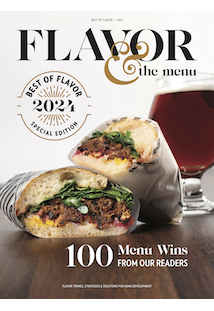
Matthew Hobbs is passionate about sustainable seafood. “We at the Park Hyatt are driven by principles of sustainability,” he says. “We always try to pay homage to local farmers and sustainability advocates on our menu whenever possible.”
Hobbs regards it as a responsibility to be knowledgeable about the sourcing of ingredients. “Relaying the importance of sustainability, locality and quality keeps our team inspired, informed and passionate about the ingredients we use,” he says, noting the opportunity for guest education and connection. “Some guests have reservations about farmed seafood. It’s important to be able to answer the many questions about water conditions, diets and harvesting, as well as speak to aquaculture’s positive environmental impact.”
He’s thorough in his research of products on the menu, including the history of oyster farming dating back to the 1st century BC, and the role they play in the environment.
“Oysters act as water filters by isolating carbon dioxide and nitrogen from their environment. They have a unique microbiome growing on their shells and in the sediment around them that has the capacity to process nitrogen compounds into harmless nitrogen gas,” he explains. “Excess nitrogen is responsible for a growing number of toxic algae blooms, some of which are so large they are visible from space. Algae blooms severely reduce the amount of oxygen in the water, destroying the local ecosystem and producing toxins that are dangerous to fish and humans.”
The Park Hyatt celebrates the oyster in various offerings, including its Plumped Wellfleet Oysters with carbonated mignonette, smoked ikura roe and red jalapeño, and Hay-Smoked Oysters with pink peppercorn-pomegranate mignonette.







